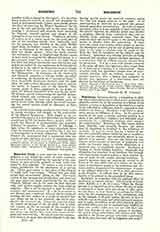

Reserved Cases, a term used for sins whose absolution is not within the power of every confessor, but is reserved to himself by the superior of the confessor, or only specially granted to some other confessor by that superior. To reserve a case is then to refuse jurisdiction for the absolution of a certain sin. Christ gave power to the rulers of His Church to make such reservations: “Whose sins you shall retain they are retained” (John, xx, 23). The reservation of sins presupposes jurisdiction, and therefore the pope alone can make reservations for the whole Church; bishops can do the same for their dioceses only and certain regular prelates for their religious subjects. That a sin be reserved it must be mortal, external, and consummated. If a sin be reserved in one diocese, and a penitent, without the intention of evading the law, confess to a priest in another diocese where the sin is not reserved, the latter may absolve the reserved sin, Cases are reserved either (a) merely on account of the sin itself, that is without censure, or (b) on account of the censures attached to it. If a penitent be in danger of death, any priest can absolve him, both from reserved censures and reserved sins. In case of reserved censures, if he recovers, he must later present himself to the one having special power for reserved censures, unless the case was simply reserved to the pope. As to reserved sins, he need not, as a general rule, present himself again after convalescence. In a case of urgent necessity, when it is not possible to have recourse to the proper superior, an ordinary priest may absolve a penitent, directly from unreserved sins and indirectly from episcopal reserved cases, but the penitent must afterwards apply to the person having power to absolve from the reservation. If there were also papal reservations, either simple or special, the absolution is direct, but in case of special reservations to the pope a relation must be made to the Holy See that its mandates on the subject may be obtained. Ignorance of a censure prevents its being incurred, but moralists dispute whether ignorance of a reservation, with or without censure, excuses from its incurrence. If it be a case with censure reserved to the pope, all agree that ignorance does excuse from it; if reserved to a bishop, it is controverted. Some moralists hold that ignorance excuses from all reservations, whether with or without censure. It is certain, however, that a bishop has authority to declare that ignorance of a reservation does not prevent its incurrence in his diocese.
WILLIAM H. W. FANNING

